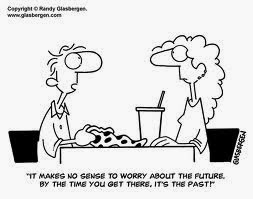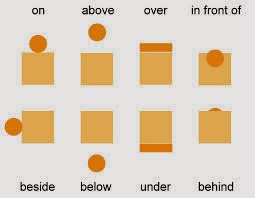WATCH CHAPTER 4 ( min 17:30-23:20)
Answer the following questions.
a.When's Matt's birthday?
b. What's his horoscope sign?
c. When's Helen's birthday?
d. What's her horoscope sign?
e. When's Jane's birthday? What are they going to do to celebrate Jane's Birthday?
f. Did David get the candles?
g. When does Jane get home?
h.Did Jane have a good day?
i What did she do?
j. What did she buy?
k. What else did she do?
l. What time did Matt get up?
m. What did he have forbreakfast?
n. When's Jane's birthday?
GRAMMAR . Simple past.
Fixa't que en algunes preguntes de l'exercici anterior hi ha la partícula DID. Utilitzem did per a fer preguntes en passat. A L'ENLLAÇ següent tindràs les explicacions clares. Després fes els exercicis.
REQUESTS.
a. TO MAKE A REQUEST és demanar alguna cosa. En el vídeo que voràs a continuació escoltaràs REQUESTS seguint tres esquemes diferents.
- CAN YOU/ I ....... ? Puc.... ?
Ex. Can I use the bathroom?
Can I turn on the TV?
- COULD YOU / I .......... ? Podria/ podries .......?
Could I turn on the light?
Could I use your phone?
- WOULD IT BE OK / ALL RIGHT IF I .......? Estaria bé si jo ......?
Would it be all right if we change it?
Would it be OK if I check my email?
Would it be OK if I borrowed your backpack?
b. Watch the video.
http://www.youtube.com/watch?v=78PMYQN1Uyg
c. FIXA'T QUE HI HA DOS TIPUS DE RESPOSTA.
POSITIVA com a:
- SURE ! Clar que sí
- GO AHEAD! . Endavant.
- NO PROBLEM
- YEAH, I GUESS SO
- I SUPPOSE THT WOULD BE OK
NEGATIVA com a:
- I'm sorry, I don't .......
- I don't think so. (my car is broken)
- I'm sorry, that's not possible.
d. NEW EXPRESSIONS!!!
I'm dying to......: Tinc motes ganes de ............
to borrow : agafar prestat
to have a day off : lliurar un dia
e. PROPOSTA D'ACTIVITAT AMB EL VIDEO.
Copia'l al quadern i practica'l amb un company.
e. STUDY THE FOLLOWING CHART.
Estan ordenades des de la més informal a la més formal:
Puc ?
Podries ....?
Et sembla bé si ....?
T'importa si...?
Estaria bé si....?
T'importaria si....?
Em pregunte si ....?
M'estava preguntant si t'importaria si....?
f. COMMANDS TO REQUESTS with CAN or COUlD as in the example.(Converteix les ordres en requests utilitzant CAN o COULD)
1.Open the door! Can you please open the door?
2. Give me a Coke!__________________________________
3.Answer the phone!__________________________________
4.Pick up the paper!__________________________________
5.Turn on the light!__________________________________
6.Turn off the computer! ________________________________
g. Now listen and DO.
http://www.esl-lab.com/request.htm
VOCABULARY
Learn the following lists of vocabulary. Pots escoltar com es pronuncien deixant el cursor damunt.
http://www.speakenglish.co.uk/vocab/foods













